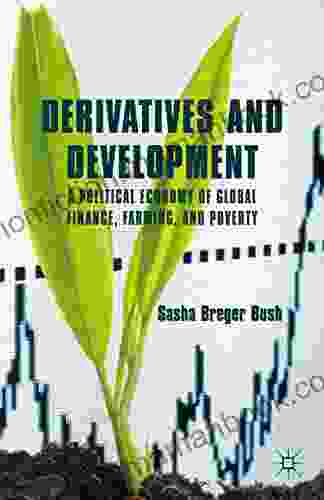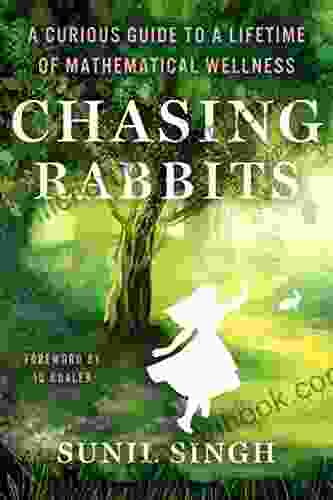A Comprehensive Guide to Maintaining a Lifetime of Mathematical Wellness

4.7 out of 5
| Language | : | English |
| File size | : | 9317 KB |
| Text-to-Speech | : | Enabled |
| Screen Reader | : | Supported |
| Enhanced typesetting | : | Enabled |
| Word Wise | : | Enabled |
| Print length | : | 284 pages |
| Lending | : | Enabled |
In today's rapidly evolving world, mathematical literacy has become an essential skill for navigating the complexities of daily life. From managing personal finances to making informed decisions, strong mathematical abilities empower us to thrive in both our personal and professional lives. While many individuals may view mathematics with trepidation or even anxiety, it is a skill that can be cultivated and refined throughout one's lifetime.
In this comprehensive guide, we will delve into the concept of mathematical wellness, exploring the multifaceted elements that contribute to a lifelong enjoyment and proficiency in mathematics. By fostering a positive mindset, embracing challenges, and building strong foundational skills, we can unlock the transformative power of mathematics and reap its benefits far beyond the classroom.
Fostering a Positive Mindset
A positive mindset towards mathematics is the cornerstone of mathematical wellness. By challenging negative self-perceptions and embracing a growth-oriented approach, we can shift our perspective from viewing mathematics as an insurmountable obstacle to recognizing it as an exciting and accessible discipline.
Challenging Negative Self-Perceptions
Many individuals harbor misconceptions or negative beliefs about their mathematical abilities, often stemming from past experiences or societal stereotypes. It is crucial to confront these limiting beliefs and replace them with empowering affirmations. Recognizing that everyone has the potential to succeed in mathematics and that mistakes are an inherent part of the learning process can help cultivate a more positive self-image.
Growth-Oriented Mindset
Adopting a growth-oriented mindset is essential for fostering a positive attitude towards mathematics. This involves believing that one's intelligence and mathematical abilities can be developed through effort and perseverance. By focusing on the process of learning rather than solely on outcomes, individuals with a growth mindset are more likely to persist in the face of challenges and seek out new opportunities to improve their mathematical skills.
Embracing Challenges
Embracing challenges is a vital aspect of mathematical wellness. By stepping outside of our comfort zones and tackling problems that initially seem daunting, we strengthen our problem-solving abilities and build confidence in our mathematical prowess.
Overcoming the Fear of Failure
The fear of failure can be a paralyzing obstacle in the pursuit of mathematical excellence. However, it is essential to recognize that mistakes and setbacks are inevitable and, in fact, necessary for growth. By embracing a learning mindset and viewing mistakes as opportunities for improvement, we can overcome the fear of failure and cultivate a more resilient approach to mathematical challenges.
Seeking Cognitive Dissonance
Cognitive dissonance is the state of holding two or more conflicting beliefs or ideas simultaneously. In the context of mathematics, seeking cognitive dissonance can be a powerful tool for growth. By intentionally exposing ourselves to challenging problems that force us to confront our current understanding, we create opportunities for cognitive restructuring and deeper understanding.
Building Strong Foundational Skills
A strong foundation in mathematical concepts is essential for long-term mathematical success. This involves developing a deep understanding of core mathematical principles and mastering fundamental skills that will serve as building blocks for more advanced concepts.
Understanding Concepts
True mathematical understanding goes beyond memorizing formulas and procedures. It involves grasping the underlying concepts and principles that govern mathematical operations. By spending time exploring mathematical concepts, asking questions, and making connections to real-world applications, we can develop a deeper and more intuitive understanding of mathematics.
Mastering Basic Skills
Proficiency in basic mathematical skills, such as arithmetic, algebra, and geometry, is essential for building a solid foundation. Regular practice and repetition are crucial for developing fluency in these fundamental skills. By consistently practicing solving problems, individuals can build automaticity and free up cognitive resources for more complex mathematical tasks.
Additional Elements of Mathematical Wellness
Beyond the core components discussed above, several other elements contribute to lifelong mathematical wellness.
Practicing Regularly
Just like any other skill, mathematical abilities require regular practice to maintain and improve. Engaging in mathematical activities, whether it's solving puzzles, playing math games, or reading mathematical literature, helps strengthen our mathematical connections and keep our minds sharp.
Seeking Support
Seeking support from peers, teachers, or tutors can be invaluable for overcoming challenges and staying motivated. Collaborating with others provides opportunities for diverse perspectives, problem-solving strategies, and encouragement, fostering a sense of community and belonging.
Cultivating a Growth-Oriented Mindset
A growth-oriented mindset is not limited to mathematics alone. Embracing this mindset in all aspects of life helps individuals approach challenges with a positive attitude and a belief in their ability to learn and grow. This holistic approach to personal development promotes mathematical wellness as part of a broader pursuit of continuous improvement.
Achieving mathematical wellness is not a destination but a lifelong journey. By fostering a positive mindset, embracing challenges, building strong foundational skills, and incorporating additional elements such as regular practice, support-seeking, and a growth-oriented mindset, we can unlock the transformative power of mathematics and enjoy its benefits throughout our lives. Remember, mathematics is not merely a subject confined to textbooks but an essential tool for navigating the complexities of the modern world and empowering us to make informed decisions, solve problems, and live fulfilling lives.
4.7 out of 5
| Language | : | English |
| File size | : | 9317 KB |
| Text-to-Speech | : | Enabled |
| Screen Reader | : | Supported |
| Enhanced typesetting | : | Enabled |
| Word Wise | : | Enabled |
| Print length | : | 284 pages |
| Lending | : | Enabled |
Do you want to contribute by writing guest posts on this blog?
Please contact us and send us a resume of previous articles that you have written.
 Top Book
Top Book Novel
Novel Fiction
Fiction Nonfiction
Nonfiction Literature
Literature Paperback
Paperback Hardcover
Hardcover E-book
E-book Audiobook
Audiobook Bestseller
Bestseller Classic
Classic Mystery
Mystery Thriller
Thriller Romance
Romance Fantasy
Fantasy Science Fiction
Science Fiction Biography
Biography Memoir
Memoir Autobiography
Autobiography Poetry
Poetry Drama
Drama Historical Fiction
Historical Fiction Self-help
Self-help Young Adult
Young Adult Childrens Books
Childrens Books Graphic Novel
Graphic Novel Anthology
Anthology Series
Series Encyclopedia
Encyclopedia Reference
Reference Guidebook
Guidebook Textbook
Textbook Workbook
Workbook Journal
Journal Diary
Diary Manuscript
Manuscript Folio
Folio Pulp Fiction
Pulp Fiction Short Stories
Short Stories Fairy Tales
Fairy Tales Fables
Fables Mythology
Mythology Philosophy
Philosophy Religion
Religion Spirituality
Spirituality Essays
Essays Critique
Critique Commentary
Commentary Glossary
Glossary Bibliography
Bibliography Index
Index Table of Contents
Table of Contents Preface
Preface Introduction
Introduction Foreword
Foreword Afterword
Afterword Appendices
Appendices Annotations
Annotations Footnotes
Footnotes Epilogue
Epilogue Prologue
Prologue Peter G Johnson
Peter G Johnson David A Greenwood
David A Greenwood Kevin Dawe
Kevin Dawe Merwan Mehta
Merwan Mehta Eileen Moynahan
Eileen Moynahan Clint Hill
Clint Hill C Fred Bergsten
C Fred Bergsten Himanshu Bhatnagar
Himanshu Bhatnagar Timothy V Rasinski
Timothy V Rasinski Peter Golden
Peter Golden Gail Damerow
Gail Damerow M L Buchman
M L Buchman Heather Graham
Heather Graham Lilian Harry
Lilian Harry Z L Arkadie
Z L Arkadie John Smith
John Smith James Swallow
James Swallow Matthew Arnold
Matthew Arnold Osip Mandelstam
Osip Mandelstam James Ashbury
James Ashbury
Light bulbAdvertise smarter! Our strategic ad space ensures maximum exposure. Reserve your spot today!

 Tennessee WilliamsWerewolves of Chicago: A Comprehensive Guide to the City's Wolf Shifters
Tennessee WilliamsWerewolves of Chicago: A Comprehensive Guide to the City's Wolf Shifters Anton FosterFollow ·10.3k
Anton FosterFollow ·10.3k Tom HayesFollow ·8.4k
Tom HayesFollow ·8.4k Kenneth ParkerFollow ·5.4k
Kenneth ParkerFollow ·5.4k Gil TurnerFollow ·17.3k
Gil TurnerFollow ·17.3k Harvey BellFollow ·5.6k
Harvey BellFollow ·5.6k Bobby HowardFollow ·2.3k
Bobby HowardFollow ·2.3k Dean CoxFollow ·8.8k
Dean CoxFollow ·8.8k Dominic SimmonsFollow ·17.7k
Dominic SimmonsFollow ·17.7k

 Steve Carter
Steve CarterUnveiling the Rich Theatrical Tapestry of Russia: A...
Origins and Early...

 Frank Butler
Frank ButlerOn Talking Terms With Dogs: Calming Signals and the...
For centuries, dogs have...

 Leo Tolstoy
Leo TolstoyThe Inside Guide to Applying and Succeeding in...
Applying to...

 Cole Powell
Cole PowellThe Political Economy of Global Finance, Farming and...
The global...
4.7 out of 5
| Language | : | English |
| File size | : | 9317 KB |
| Text-to-Speech | : | Enabled |
| Screen Reader | : | Supported |
| Enhanced typesetting | : | Enabled |
| Word Wise | : | Enabled |
| Print length | : | 284 pages |
| Lending | : | Enabled |














